Television has given us some of the most despicable characters ever created, and with them, some of the most satisfying deaths. Whether it’s due to their heinous acts, manipulative behavior, or sheer cruelty, these characters had audiences eagerly awaiting their demise.
Additionally, their deaths often served as justice, delivering closure to the storylines. So, here are the 15 most satisfying TV character deaths that left audiences cheering.
15. Todd (The Boys)

Todd’s death in ‘The Boys’ was a deeply satisfying moment, both narratively and emotionally. Todd, Janine’s stepfather and a staunch supporter of Homelander, represents the blind, fanatical loyalty that Homelander inspires in his followers. His unwavering devotion to the murderous and psychopathic superhero became increasingly grating especially as he ignored logic.
Related:10 TV Shows To Watch If You Like ‘Friends’
The character even went as far as to pick homelander over the safety of his own family. Throughout his appearances, Todd often belittled MM (Marvin Milk), Janine’s biological father, even when he spoke with logic. So, when he meets his end on Homelander’s order even after he proved his devotion it was as poetic as it gets.
14. Perry Wright (Big Little Lies)

The Death of Perry Wright in ‘Big Little Lies’ was a harrowing and cathartic moment. It symbolizes the culmination of his abusive reign over Celeste and his oppressive impact on the other women. Perry was revealed to be a deeply violent man, physically and emotionally tormenting Celeste while maintaining a charming façade to the outside world.
His manipulative and predatory behavior also extended beyond his marriage, as he was revealed to be Jane’s rapist and the father of her son. Moreover, the scene of Perry’s death was both shocking and justified. During the school fundraiser, the women confronted Perry about his abusive actions, leading to a tense and emotional altercation. When Perry turned physically violent and began assaulting Celeste, Bonnie intervened, pushing him down the stairs in a moment of desperation and solidarity which ultima kef to his death.
13. Todd Alquist (Breaking Bad)

Todd Alquist’s death in ‘Breaking Bad’ was one of the most gratifying moments in the series, as it brought justice to one of the show’s most hated characters. Todd was a sociopath who committed heinous acts with a childlike innocence. His most disturbing moment came when he shot a young boy during a train heist without hesitation.
This incident cemented as a villain fans loved to hate. Moreover, during the series finale, Todd’s end came at the hands of Jesse Pinkman, who had been enslaved and tortured by Todd and his uncle’s gang. When Walter White orchestrated an explosive ambush to free Jesse, the tables turned. Jesse strangled Todd with his chains in a scene that encapsulated Jesse’s fury. So, his death was not only satisfying because of his crimes but also because it marked Jesse’s moment of empowerment.
12. Jason Carver (Stranger Things)

As the leader of Hawkins’ basketball team and a supposed golden boy, Jason Carver initially appeared harmless. However, after the death of his girlfriend, Chrissy, in Eddie Munson’s trailer, Jason quickly devolved into a vengeful antagonist. Blinded by grief and ignorance, he became obsessed with hunting down Eddie and the Hellfire Club, believing they were part of a cult.
Jason’s death occurred in the final episode of Season 4 during the showdown between Eleven and Vecna. As Vecna’s gates tore through Hawkins, one gate split the floor beneath Jason while he fought Lucas Sinclair, killing him in an instant. His death displayed how the character was so consumed by hatred and paranoia that he failed to understand the true danger Hawkins faced. Moreover, his end was both tragic and satisfying.
11. Bev Keane (Midnight Mass)
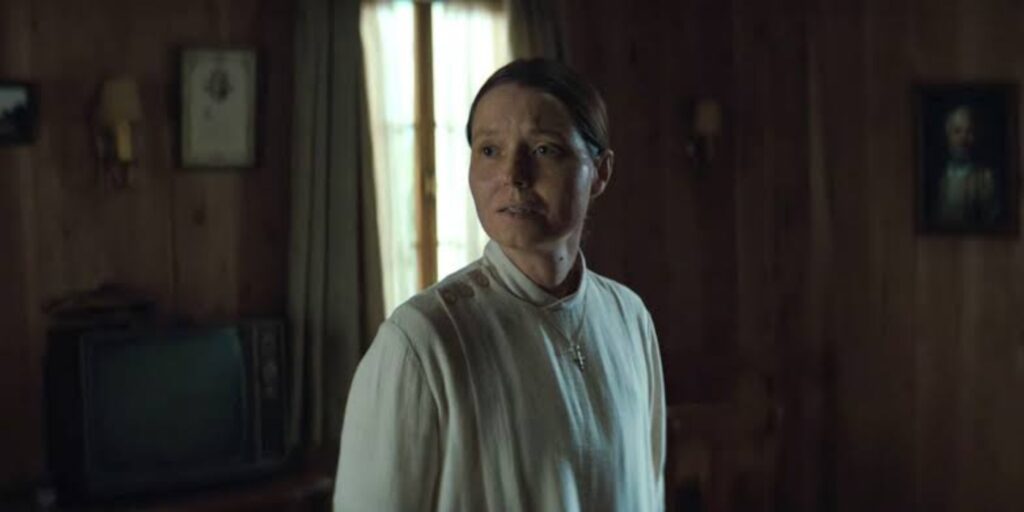
Bev Keane’s unwavering belief in her moral and spiritual superiority made her one of the most detestable characters in the series. She manipulated her faith to justify cruel actions, such as ostracizing those she deemed unworthy, spreading fear, and ultimately embracing the vampiric nature of the angel as divine will. Bev’s complete lack of compassion and her ability to twist scripture to suit her agenda made her an infuriating antagonist.
Additionally, her death was deeply satisfying because it was a culmination of her hypocrisy. After orchestrating a literal apocalypse in the name of God, Bev’s faith crumbles when she realizes there is no escape from death. While she had earlier condemned others as sinners and assured her own place in heaven, her true nature is exposed in her final moments: a terrified, selfish woman trying to dig herself into the sand to avoid the inevitable.
10. Jang Deok-su (Squid Game)

Jang Deok-su was the main bully in ‘Squid Game’ embodying greed and ruthlessness with no regard for human life. Throughout the show, he terrorized weaker players, manipulated alliances, and used violence to maintain control. Deok-su thrived in the cutthroat environment of the games. Additionally, his dominance makes him one of the most hated characters on the show.
His death during the Glass Bridge game was both ironic and gratifying. After betraying countless people, including Mi-nyeo, she delivers justice by dragging him down with her in an act of revenge. Her promise to kill him if he ever betrayed her is fulfilled in a way that highlights his downfall.
9. Phil Leotardo (The Sopranos)
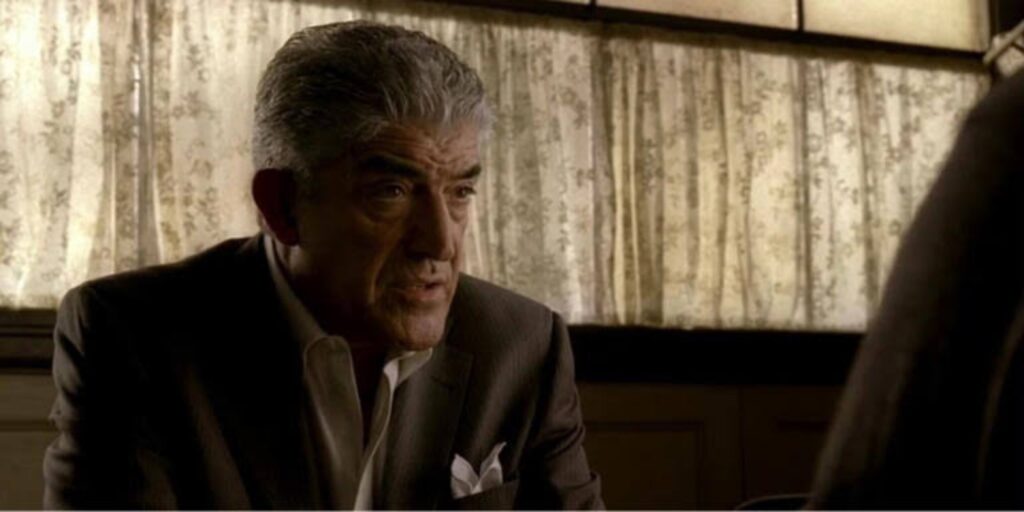
As the head of the Lupertazzi crime family, Phil Leotardo was ruthless, prideful, and unwilling to compromise. His obsession with avenging past slights led to escalating violence and unnecessary bloodshed, cementing him as one of the show’s most hated characters. His cruelty reached a peak when he ordered brutal hits on Tony Soprano’s associates and family members.
Phil’s death was a masterstroke of dark irony and poetic justice. While leaving a gas station with his family, Phil is shot in the head in front of his wife and grandchildren. The scene becomes disturbingly comedic when his car rolls forward, crushing his skull as horrified onlookers watch.
8. Nina Myers (24)
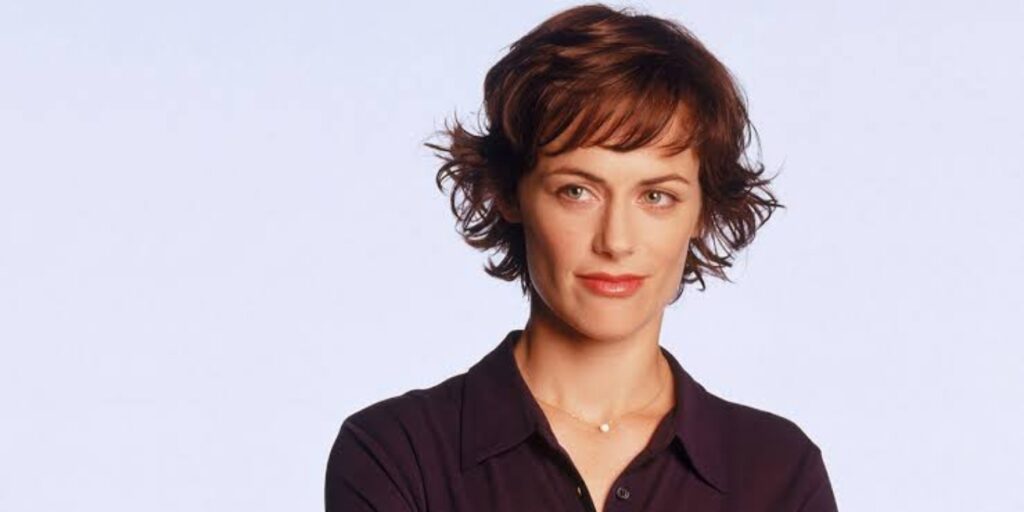
Nina Myers was one of the most memorable villains in ‘24’, known for her shocking betrayal of Jack Bauer. Initially introduced as a trusted ally and former lover of Jack, Nina’s true colors were revealed when she was exposed as a mole working against CTU. Her betrayal not only cost the team critical operations but also led to devastating personal losses for Jack, including the murder of his wife.
This act turned her into one of the most reviled characters in the series. So, her death in season three, when Jack shoots her without hesitation, was immensely satisfying. By that point, Nina had continued to manipulate and betray those around her, proving time and again that she was irredeemable. Jack’s execution of Nina felt like justice not only for Teri but for all the lives she had destroyed.
7. Kilgrave (Jessica Jones)

Kilgrave’s power of mind control makes him more than just a villain; he’s a symbol of abuse, manipulation, and trauma. He is one of the most terrifying villains in ‘Jessica Jones’. His ability to compel people to do whatever he commands leaves Jessica and countless others mentally and emotionally scarred.
Additionally, throughout the series, Jessica battles not just Kilgrave but also her own trauma. She blames herself for the pain he caused others, including his manipulation of her into killing an innocent woman. Despite his monstrous actions, Kilgrave is smug and self-assured, believing he is untouchable because of his power. So, Jessica snapping Kilgrave’s neck in the finale is immensely satisfying because it marks the culmination of her emotional journey. She’s no longer his victim; she’s his executioner.
6. Gus Fring (Breaking Bad)
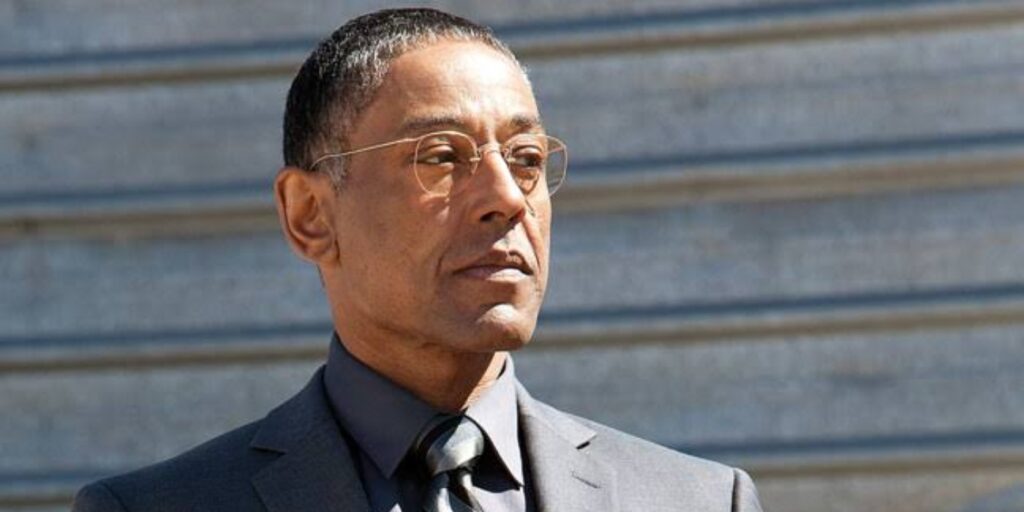
Gustavo “Gus” Fring’s death in ‘Breaking Bad’ is one of the most iconic and satisfying moments in television history. Gus is a calm, calculated drug lord whose terrifying demeanor comes from his ability to remain composed even in dire situations. His meticulous planning and business-savvy mind make him a formidable adversary for Walter White.
What makes his death so satisfying is the sheer brilliance of Walter White’s plan to outmaneuver him. Gus spends the series always being two steps ahead of everyone else. However, Walt’s explosive trap with Hector Salamanca finally catches him off guard. The moment Gus steps out of the room, adjusts his tie, and collapses to reveal the horrific half of his face blown off is both shocking and poetic. His death is the ultimate payoff for viewers who have watched his reign of terror with both awe and dread.
5. Walder Frey (Game of Thrones)
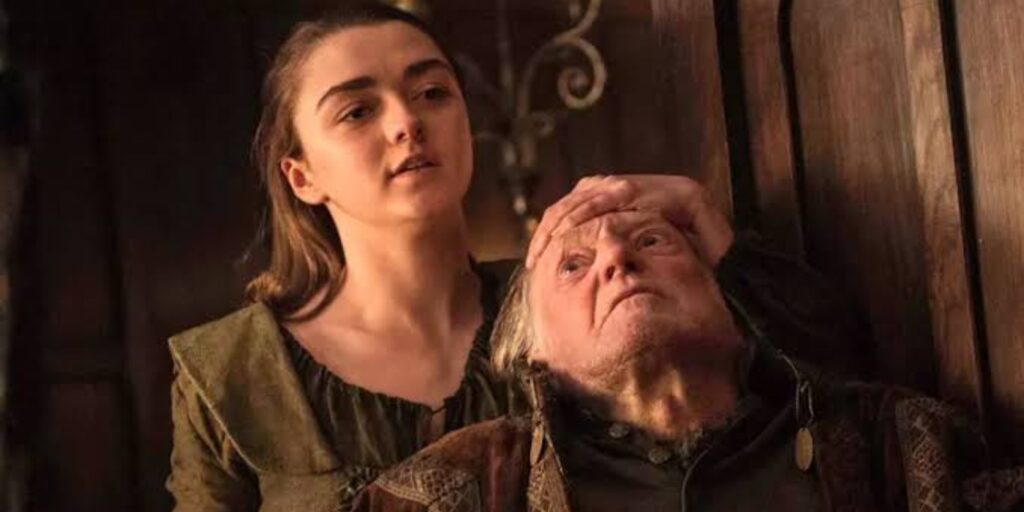
Walder Frey’s death in ‘Game of Thrones’ is a moment of sweet, brutal justice that fans had been anticipating since the infamous Red Wedding. He is the embodiment of betrayal and opportunism. Moreover, his role in orchestrating the massacre of the Starks at the Red Wedding made him one of the most hated characters in the series.
So, when Arya Stark returns to the Twins and kills Walder Frey in Season 6, it’s not just revenge; it’s poetic justice. Arya feeds him a pie made from the flesh of his sons before slitting his throat, echoing the same gruesome fate that her mother, Catelyn Stark, suffered. Walder’s death is immensely satisfying because it’s personal.
4. Arthur Mitchell (Dexter)

The Trinity Killer aka Arthur Mitchell is one of ‘Dexter’s most terrifying and complex antagonists. On the surface, Arthur was an ordinary family man. However, it was revealed that he had a horrifying double life as a serial killer. His killings followed a strict pattern, making him a challenging foe for Dexter. Arthur wasn’t just dangerous, he was deeply manipulative, playing psychological games with Dexter.
The emotional weight of Arthur’s storyline reached its peak in the shocking season four finale when Dexter discovers that Arthur had killed Rita, leaving their infant son in a pool of her blood. So, Arthur’s death at Dexter’s hands was deeply satisfying. Dexter finally managed to outsmart him, delivering a gruesome yet fitting end to a killer who had caused so much devastation.
3. The Governor (The Walking Dead)
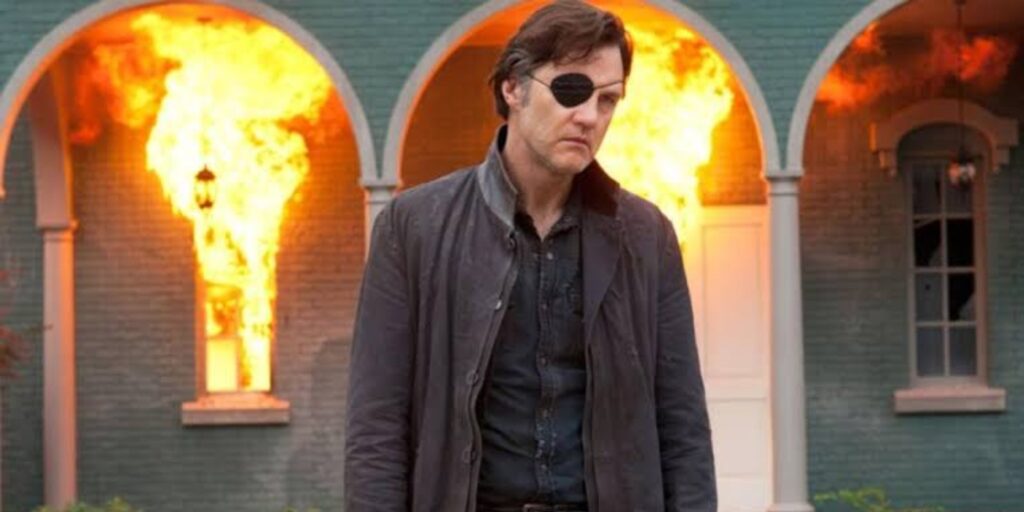
Philip Blake aka The Governor was a charismatic yet ruthless antagonist in ‘The Walking Dead’. As the leader of Woodbury, he initially appeared to be a protector of his community but soon revealed himself to be a power-hungry dictator. His descent into madness was marked by brutal acts, including the slaughter of his own people, the torture of Michonne and Glenn, and the prison attack.
Additionally, the Governor’s vendetta against Rick and his group became one of the series’ most intense conflicts and also resulted in a violent battle. After killing Hershel in cold blood and leading an assault on the prison, he was defeated by Rick’s group. His demise came at the hands of Michonne, who stabbed him through the chest, and Lily, one of his disillusioned followers, who delivered the final shot. It was a fitting end for a villain who had pushed the limits of cruelty and chaos.
2. Ramsay Bolton (Game of Thrones)
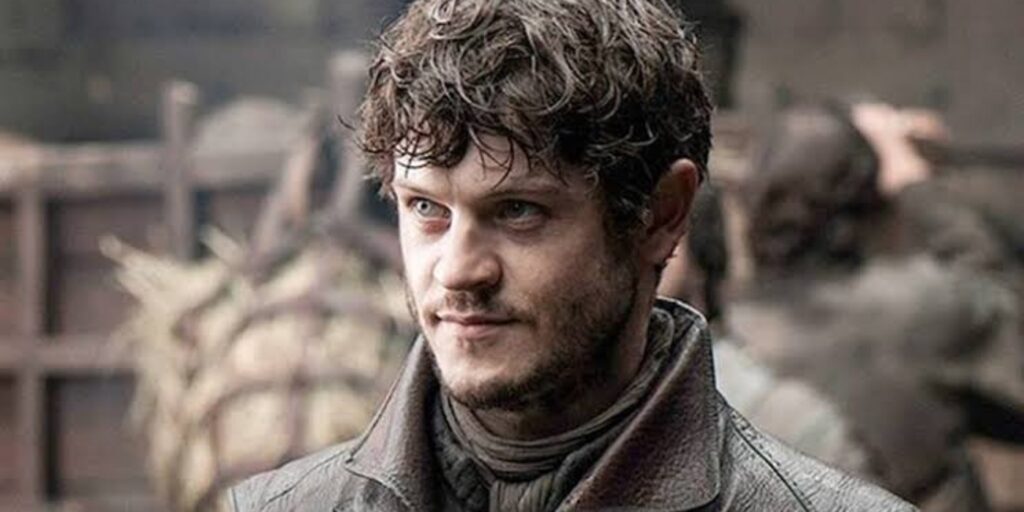
Ramsay Bolton is one of the vilest and sadistic characters in ‘Game of Thrones’, defined by his relentless cruelty and unquenchable thirst for power. As the ‘bastard’ son of Roose Bolton, Ramsay relished in brutality. Whether it was skinning his enemies alive, torturing Theon Greyjoy into submission, or terrorizing Sansa Stark after their forced marriage he enjoyed it all.
His unpredictability and psychopathic nature made him terrifying. So, unsurprisingly Ramsay’s death in Season 6 is deeply satisfying. After his army is annihilated at the Battle of the Bastards, Jon Snow captures him, and Sansa ensures that Ramsay faces a fate worse than death. In a brilliant twist, he is tied up and fed to his own starving dogs (animals he had often used to hunt and torment others).
1. Joffrey Baratheon (Game of Thrones)

The boy king of Westeros, Joffrey Baratheon, is the quintessential spoiled, power-hungry tyrant. From the moment he ascends the Iron Throne, Joffrey uses his position to indulge his sadistic tendencies, tormenting those around him simply because he can. His most infamous actions include ordering the execution of Ned Stark and abusing Sansa Stark both emotionally and physically.
In case you missed it: Best Comic Book Movies and TV Shows Of 2024 Ranked
Unlike Ramsay, Joffrey’s cruelty stems from his entitlement and immaturity, making him both dangerous and insufferable. Joffrey’s death during the infamous Purple Wedding is one of the most satisfying moments in the series. Poisoned by Olenna Tyrell and Petyr Baelish, Joffrey dies choking, gasping, and clawing at his throat in front of a crowd. It’s a dramatic and public end for a character who craved power and attention.





